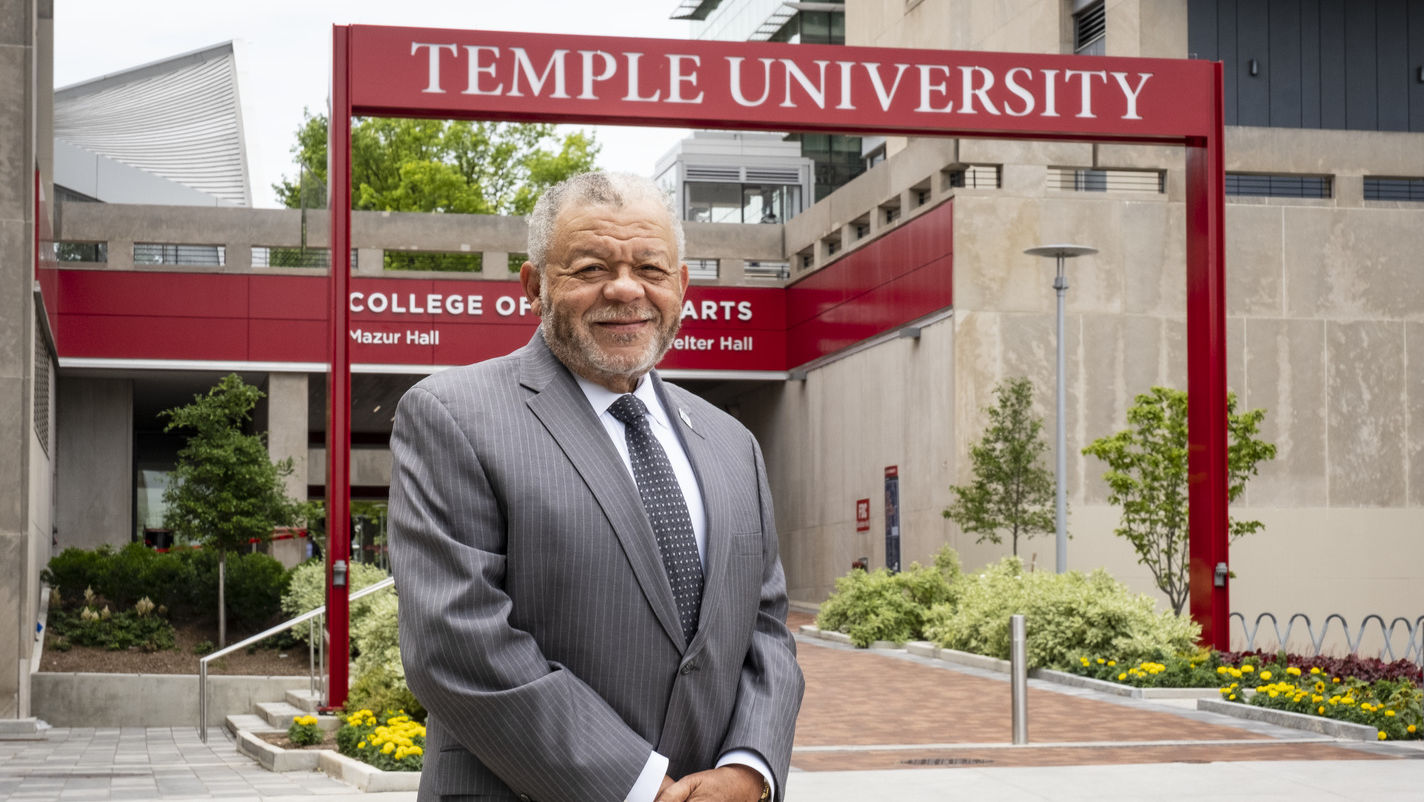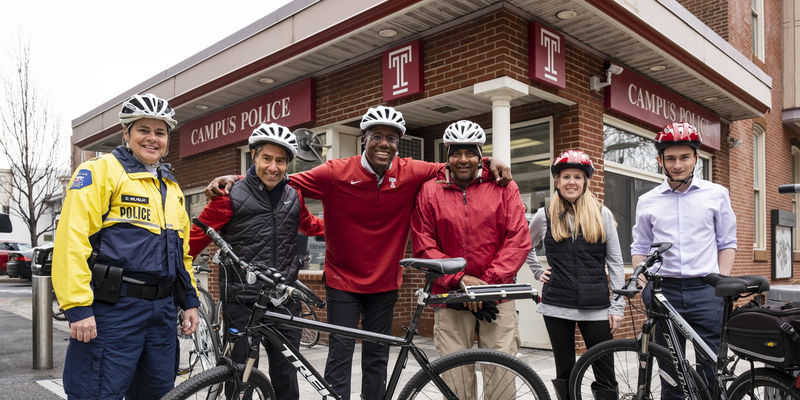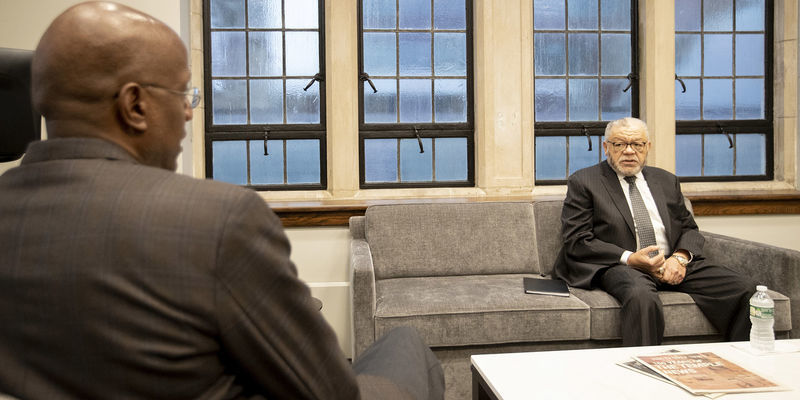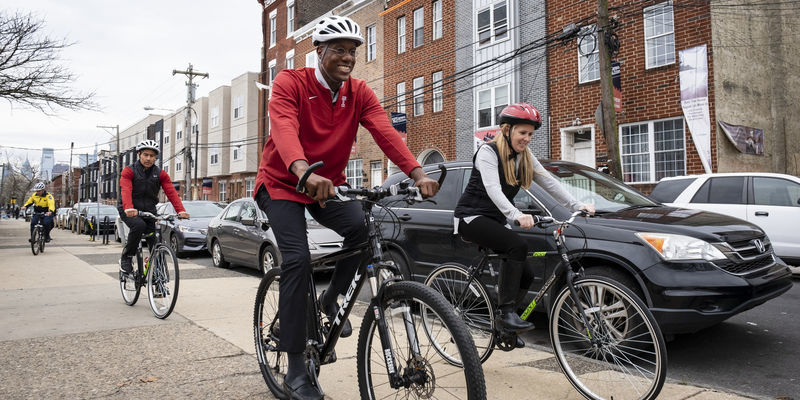Charles Ramsey highlights importance of engaging community stakeholders during campus safety audit
During an audit as part of Temple’s new safety enhancements, former Philadelphia Police Commissioner Charles Ramsey and his public safety organization, 21CP Solutions, will review policies, technology, training and community engagement.

One of the nation’s leading crime reductionists sits right in the backyard of Temple University. Former Police Commissioner Charles Ramsey, who lives in Philadelphia, is leading efforts to review Temple’s safety operations with the goal of identifying areas for improvement.
Ramsey served as Philadelphia’s police commissioner from 2008 to 2016, during which the city’s homicide rate declined by 37%. He previously co-chaired President Barack Obama’s Task Force on 21st Century Policing.
Ramsey and his team at public safety organization 21CP Solutions will be reviewing policies, technology and training procedures and engaging with community members during a campus safety audit. His team has noticed a common thread amongst universities based in urban areas while conducting similar audits.
“Temple and universities in urban settings face issues when the students start moving further away from campus,” Ramsey said.
“Whereas the campus itself is relatively safe and we don’t see many issues, as you start to push out into surrounding areas sometimes that presents some challenges. We need to know more about that and find out what is actually being done to deal with it.”
Ramsey acknowledged how news media coverage of crime incidents occurring near Temple can impact people’s perspective of campus safety.
“One thing that I see, just by living in Philly, which I think is very unfair is that when anything happens within three to four blocks the news always mentions that it’s near Temple’s campus, even though nobody from Temple was involved,” he stated. “So, it gives the perception that Temple kids are unsafe.”
Ramsey is seeking feedback from community stakeholders as part of the safety audit process.
“We want to hear from people that will be supportive of the university but also some who are critical. Let’s find out exactly what they feel,” he stated. “We want a variety of opinions, so that we have as broad of a perspective as possible.”
His team plans to start hosting focus group sessions with stakeholders such as area residents, business owners, community leaders, students and faculty by late September. They seek to convene focus groups of about 10 people.
“We want to know what’s working now and we want to know what needs to be improved from everybody’s perspective,” Ramsey said.
“What we need to have is a focus group of people who are really interested and committed to trying to make a difference and we can have a real facilitated discussion.”
Members of the Temple community can provide feedback directly to 21CP by sending an email to voicesoftemple@21cpsolutions.com.
The audit is part of the safety initiatives Temple launched to address an increase in gun violence near Main Campus.
“Now is probably the most critical time to do this audit given what’s going on in the country and in the city and around the campus,” said Ken Kaiser, senior vice president and chief operating officer of Temple.
“We want to make sure that the Temple police force is implementing best practices, that they have all the tools necessary to do that and have everything they need to protect Temple students, faculty and staff, and the local community. It’s really an opportunity just to do a check up, correct anything that needs correcting, add anything that needs adding or change anything that needs to be changed,” Kaiser continued.
The audit began in April with the collection of Campus Safety Services documents. In June, Ramsey’s team started interviewing Temple campus safety officers and members of the Allied Universal security forces that patrol campus. They will be engaging with Philadelphia Police Department officers and reviewing police data of crime incidents occurring in and around Temple’s campus.
“Hopefully they can break it down to whether or not it’s Temple students versus non-Temple students so people can get an accurate picture of what’s going on,” Ramsey said.
“A lot of what is happening around there is not involving Temple students, but it certainly adds to the perception of safety being compromised.”
His team is expected to present Temple President Jason Wingard with a final draft of the audit by early 2023.


